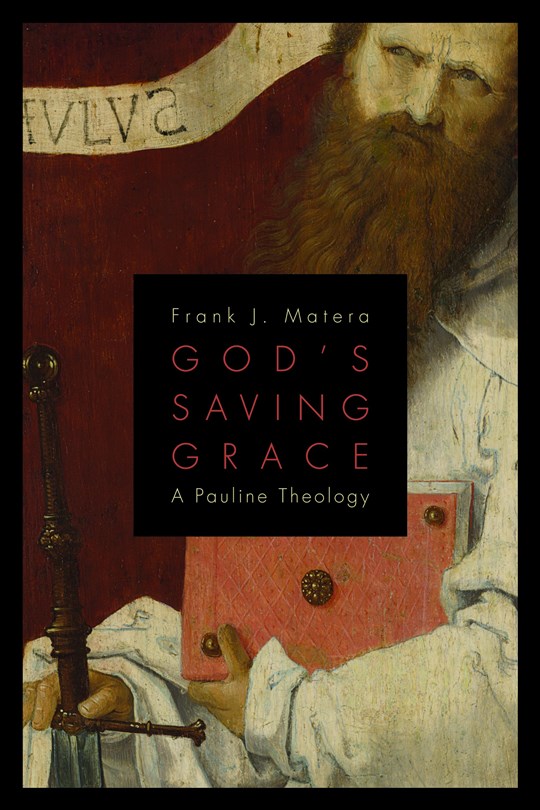Frank Matera: God’s Saving Grace
 Frank J. Matera, God’s Saving Grace: A Pauline Theology (Grand Rapids: Eerdmans, 2012), 283 pages, ISBN 9780802867476.
Frank J. Matera, God’s Saving Grace: A Pauline Theology (Grand Rapids: Eerdmans, 2012), 283 pages, ISBN 9780802867476.
In Frank Matera’s God’s Saving Grace: A Pauline Theology the author considers with careful and solid scholarship the totality of Paul’s themes in the canonical thirteen letters of scripture. Matera, a Roman Catholic and professor of Biblical Studies at Catholic University of America, Washington D.C., speaks as a scholar who studied Reformation teaching. He recaptures Pauline theology, succinctly unwrapping the apostle’s original framework concerning salvation in Jesus Christ. Utilizing Paul’s conversion experience and call, he builds a case that the grace of God remains the foundation for the apostle’s soteriology. In Ephesians 2:8-9 (NRSV) he states “for by grace you have been saved through faith, and this is not your own doing; it is the gift of God-not the result of works, so that no one may boast.” Matera writes, Paul “no longer knows God except in Christ;”(248) therefore, there is nothing that sustains him but Christ alone. Again, he continues, “once the mystery of God’s redemptive plan has been revealed, however, it is clear that there has always been one plan, which is revealed in Christ”(248). Through the motif of the saving grace of Jesus, Matera outlines the meaning of salvation and redemption in his book.
Ch 1 A Pauline Theology of God’s Grace
Pauline theology, whether christology, pneumatology or eschatology is centered in the saving grace of God through the cross of Jesus.
Ch 2 Paul’s Experience of God’s Saving Grace
Paul’s calling and apostleship is grounded in the Damascus Road christophany (Acts 9) where he encountered with Christ. In Gal. 1:13-2:21, the apostle’s autobiography divulges this defining moment of his life. Matera indicates that a number of his letters commence with the launching of his apostleship by “the will of God” (1 Cor. 1:1). Paul defends his ministry with the Damascus christophany as his conversion was both a transformation and calling in one event. As Matera examines each of the three accounts of his christophany recorded in Acts 9, 22, 26, he writes that Paul’s commission was of divine origin, built on the kerygma of the cross of Christ (1 Cor. 1:18). Hence, he observes “Paul’s call, his gospel, and his apostleship are intimately related to each other” (42). Matera’s Pauline theology, is established in the Damascus Road christophany, and in that momentous event, Christ became the focus of the apostle’s life.
Category: Biblical Studies, Fall 2016


